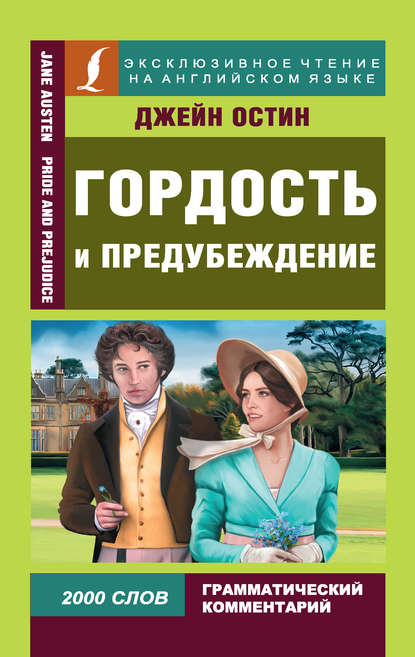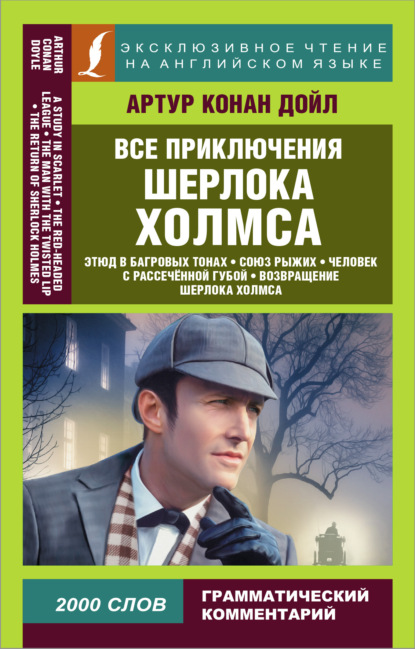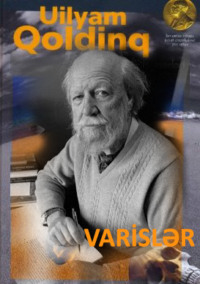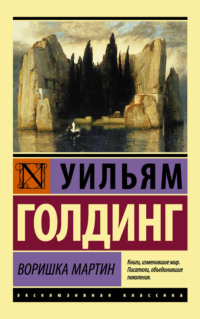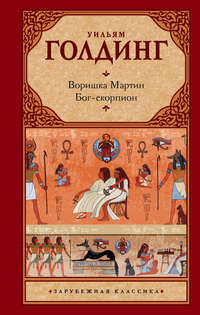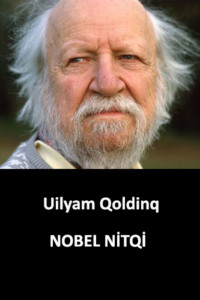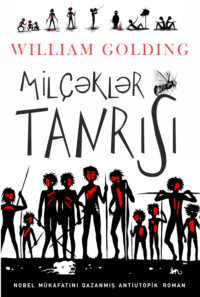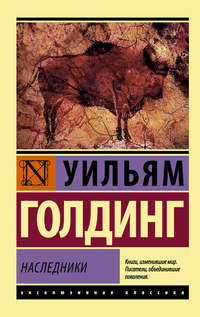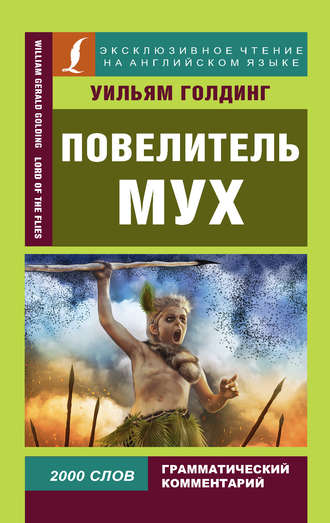
Полная версия
Повелитель мух / Lord of the Flies
At length he let out his breath in a long sigh and opened his eyes. They were bright blue, eyes that in this frustration seemed bolting and nearly mad. He passed his tongue across dry lips and scanned the uncommunicative forest. Then again he stole forward and cast this way and that over the ground.
The silence of the forest was more oppressive than the heat, and at this hour of the day there was not even the whine of insects. Only when Jack himself roused a gaudy bird from a primitive nest of sticks was the silence shattered and echoes set ringing by a harsh cry that seemed to come out of the abyss of ages. Jack himself shrank at this cry with a hiss of indrawn breath, and for a minute became less a hunter than a furtive thing, ape-like among the tangle of trees. Then the trail, the frustration, claimed him again and he searched the ground avidly. By the trunk of a vast tree that grew pale flowers on its grey bark he checked, closed his eyes, and once more drew in the warm air; and this time his breath came short, there was even a passing pallor in his face, and then the surge of blood again. He passed like a shadow under the darkness of the tree and crouched, looking down at the trodden ground at his feet.
The droppings were warm. They lay piled among turned earth. They were olive green, smooth, and they steamed a little. Jack lifted his head and stared at the inscrutable masses of creeper that lay across the trail. Then he raised his spear and sneaked forward. Beyond the creeper, the trail joined a pig-run that was wide enough and trodden enough to be a path. The ground was hardened by an accustomed tread and as Jack rose to his full height he heard something moving on it. He swung back his right arm and hurled the spear with all his strength. From the pig-run came the quick, hard patter of hoofs, a castanet sound, seductive, maddening—the promise of meat. He rushed out of the undergrowth and snatched up his spear. The pattering of pig’s trotters died away in the distance.
Jack stood there, streaming with sweat, streaked with brown earth, stained by all the vicissitudes of a day’s hunting. Swearing, he turned off the trail and pushed his way through until the forest opened a little and instead of bald trunks supporting a dark roof there were light grey trunks and crowns of feathery palm. Beyond these was the glitter of the sea and he could hear voices. Ralph was standing by a contraption of palm trunks and leaves, a rude shelter that faced the lagoon and seemed very near to falling down. He did not notice when Jack spoke.
“Got any water?”
Ralph looked up, frowning, from the complication of leaves. He did not notice Jack even when he saw him.
“I said have you got any water? I’m thirsty.” Ralph withdrew his attention from the shelter and realized Jack with a start.
“Oh, hullo. Water? There by the tree. Ought to be some left.”
Jack took up a coconut shell that brimmed with fresh water from among a group that was arranged in the shade, and drank. The water splashed over his chin and neck and chest.
He breathed noisily when he had finished.
“Needed that.”
Simon spoke from inside the shelter.
“Up a bit.”
Ralph turned to the shelter and lifted a branch with a whole tiling of leaves.
The leaves came apart and fluttered down. Simon’s contrite face appeared in the hole.
“Sorry.”
Ralph surveyed the wreck with distaste.
“Never get it done.”
He flung himself down at Jack’s feet. Simon remained, looking out of the hole in the shelter. Once down, Ralph explained.
“Been working for days now. And look!”
Two shelters were in position, but shaky. This one was a ruin.
“And they keep running off. You remember the meeting? How everyone was going to work hard until the shelters were finished?”
“Except me and my hunters—”
“Except the hunters. Well, the littluns are—”
He gesticulated, sought for a word.
“They’re hopeless. The older ones aren’t much better. D’you see? All day I’ve been working with Simon. No one else. They’re off bathing, or eating, or playing.”
Simon poked his head out carefully.
“You’re chief. You tell ’em off.”
Ralph lay flat and looked up at the palm trees and the sky.
“Meetings. Don’t we love meetings? Every day. Twice a day. We talk.” He got on one elbow. “I bet if I blew the conch this minute, they’d come running. Then we’d be, you know, very solemn, and someone would say we ought to build a jet, or a submarine, or a TV set. When the meeting was over they’d work for five minutes, then wander off or go hunting.”
Jack flushed.
“We want meat.”
“Well, we haven’t got any yet. And we want shelters. Besides, the rest of your hunters came back hours ago. They’ve been swimming.”
“I went on,” said Jack. “I let them go. I had to go on. I—”
He tried to convey the compulsion to track down and kill that was swallowing him up.
“I went on. I thought, by myself—”
The madness came into his eyes again.
“I thought I might—kill.”
“But you didn’t.”
“I thought I might.”
Some hidden passion vibrated in Ralph’s voice.
“But you haven’t yet.”
His invitation might have passed as casual, were it not for the undertone.
“You wouldn’t care to help with the shelters, I suppose?”
“We want meat—”
“And we don’t get it.”
Now the antagonism was audible.
“But I shall! Next time! I’ve got to get a barb on this spear! We wounded a pig and the spear fell out. If we could only make barbs—”
“We need shelters.”
Suddenly Jack shouted in rage.
“Are you accusing—?”
“All I’m saying is we’ve worked dashed hard. That’s all.”
They were both red in the face and found looking at each other difficult. Ralph rolled on his stomach and began to play with the grass.
“If it rains like when we dropped in we’ll need shelters all right. And then another thing. We need shelters because of the—”
He paused for a moment and they both pushed their anger away. Then he went on with the safe, changed subject.
“You’ve noticed, haven’t you?”
Jack put down his spear and squatted.
“Noticed what?”
“Well. They’re frightened.”
He rolled over and peered into Jack’s fierce, dirty face.
“I mean the way things are. They dream. You can hear ’em. Have you been awake at night?”
Jack shook his head.
“They talk and scream. The littluns. Even some of the others. As if—”
“As if it wasn’t a good island.”
Astonished at the interruption, they looked up at Simon’s serious face.
“As if,” said Simon, “the beastie, the beastie or the snake-thing, was real. Remember?”
The two older boys flinched when they heard the shameful syllable. Snakes were not mentioned now, were not mentionable.
“As if this wasn’t a good island,” said Ralph slowly. “Yes, that’s right.”
Jack sat up and stretched out his legs.
“They’re batty.”
“Crackers. Remember when we went exploring?” They grinned at each other, remembering the glamour of the first day. Ralph went on.
“So we need shelters as a sort of—”
“Home.”
“That’s right.”
Jack drew up his legs, clasped his knees, and frowned in an effort to attain clarity.
“All the same—in the forest. I mean when you’re hunting, not when you’re getting fruit, of course, but when you’re on your own—”
He paused for a moment, not sure if Ralph would take him seriously.
“Go on.”
“If you’re hunting sometimes you catch yourself feeling as if—” He flushed suddenly.
“There’s nothing in it of course. Just a feeling. But you can feel as if you’re not hunting, but— being hunted, as if something’s behind you all the time in the jungle.”
They were silent again: Simon intent, Ralph incredulous and faintly indignant. He sat up, rubbing one shoulder with a dirty hand.
“Well, I don’t know.”
Jack leapt to his feet and spoke very quickly.
“That’s how you can feel in the forest. Of course there’s nothing in it. Only—only—”
He took a few rapid steps toward the beach, then came back.
“Only I know how they feel. See? That’s all.”
“The best thing we can do is get ourselves rescued.”
Jack had to think for a moment before he could remember what rescue was.
“Rescue? Yes, of course! All the same, I’d like to catch a pig first—” He snatched up his spear and dashed it into the ground. The opaque, mad look came into his eyes again. Ralph looked at him critically through his tangle of fair hair.
“So long as your hunters remember the fire—”
“You and your fire!”
The two boys trotted down the beach, and, turning at the water’s edge, looked back at the pink mountain. The trickle of smoke sketched a chalky line up the solid blue of the sky, wavered high up and faded. Ralph frowned.
“I wonder how far off you could see that.”
“Miles.”
“We don’t make enough smoke.”
The bottom part of the trickle, as though conscious of their gaze, thickened to a creamy blur which crept up the feeble column.
“They’ve put on green branches,” muttered Ralph. “I wonder!” He screwed up his eyes and swung round to search the horizon.
“Got it!”
Jack shouted so loudly that Ralph jumped.
“What? Where? Is it a ship?”
But Jack was pointing to the high declivities that led down from the mountain to the flatter part of the island.
“Of course! They’ll lie up there—they must, when the sun’s too hot—”
Ralph gazed bewildered at his rapt face.
“—they get up high. High up and in the shade, resting during the heat, like cows at home—”
“I thought you saw a ship!”
“We could steal up on one—paint our faces so they wouldn’t see—perhaps surround them and then—”
Indignation took away Ralph’s control.
“I was talking about smoke! Don’t you want to be rescued? All you can talk about is pig, pig, pig!”
“But we want meat!”
“And I work all day with nothing but Simon and you come back and don’t even notice the huts!”
“I was working too—”
“But you like it!” shouted Ralph. “You want to hunt! While I—”
They faced each other on the bright beach, astonished at the rub of feeling. Ralph looked away first, pretending interest in a group of littluns on the sand. From beyond the platform came the shouting of the hunters in the swimming pool. On the end of the platform, Piggy was lying flat, looking down into the brilliant water.
“People don’t help much.”
He wanted to explain how people were never quite what you thought they were.
“Simon. He helps.” He pointed at the shelters.
“All the rest rushed off. He’s done as much as I have. Only—”
“Simon’s always about.”
Ralph stared back to the shelters with Jack by his side.
“Do a bit for you[11],” muttered Jack, “before I have a bathe.”
“Don’t bother.”
But when they reached the shelters Simon was not to be seen. Ralph put his head in the hole, withdrew it, and turned to Jack.
“He’s buzzed off.”
“Got fed up[12],” said Jack, “and gone for a bathe.”
Ralph frowned.
“He’s queer. He’s funny.”
Jack nodded, as much for the sake of agreeing as anything, and by tacit consent they left the shelter and went toward the bathing pool.
“And then,” said Jack, “when I’ve had a bathe and something to eat, I’ll just trek over to the other side of the mountain and see if I can see any traces. Coming?”
“But the sun’s nearly set!”
“I might have time—”
They walked along, two continents of experience and feeling, unable to communicate.
“If I could only get a pig!”
“I’ll come back and go on with the shelter.”
They looked at each other, baffled, in love and hate. All the warm salt water of the bathing pool and the shouting and splashing and laughing were only just sufficient to bring them together again.
* * *Simon was not in the bathing pool as they had expected.
When the other two had trotted down the beach to look back at the mountain he had followed them for a few yards and then stopped. He had stood frowing down at a pile of sand on the beach where somebody had been trying to build a little house or hut. Then he turned his back on this and walked into the forest with an air of purpose. He was a small, skinny boy, his chin pointed, and his eyes so bright they had deceived Ralph into thinking him delightfully gay and wicked. The coarse mop of black hair was long and swung down, almost concealing a low, broad forehead. He wore the remains of shorts and his feet were bare like Jack’s. Always darkish in color, Simon was burned by the sun to a deep tan that glistened with sweat.
He picked his way up the scar, passed the great rock where Ralph had climbed on the first morning, then turned off to his right among the trees. He walked with an accustomed tread through the acres of fruit trees, where the least energetic could find an easy if unsatisfying meal. Flower and fruit grew together on the same tree and everywhere was the scent of ripeness and the booming of a million bees at pasture. Here the littluns who had run after him caught up with him. They talked, cried out unintelligibly, lugged him toward the trees. Then, amid the roar of bees in the afternoon sunlight, Simon found for them the fruit they could not reach, pulled off the choicest from up in the foliage, passed them back down to the endless, outstretched hands. When he had satisfied them he paused and looked round. The littluns watched him inscrutably over double handfuls of ripe fruit.
Simon turned away from them and went where the just perceptible path led him. Soon high jungle closed in. Tall trunks bore unexpected pale flowers all the way up to the dark canopy where life went on clamorously. The air here was dark too, and the creepers dropped their ropes like the rigging of foundered ships. His feet left prints in the soft soil and the creepers shivered throughout their lengths when he bumped them.
He came at last to a place where more sunshine fell. Since they had not so far to go for light the creepers had woven a great mat that hung at the side of an open space in the jungle; for here a patch of rock came close to the surface and would not allow more than little plants and ferns to grow. The whole space was walled with dark aromatic bushes, and was a bowl of heat and light. A great tree, fallen across one corner, leaned against the trees that still stood and a rapid climber flaunted red and yellow sprays right to the top.
Simon paused. He looked over his shoulder as Jack had done at the close ways behind him and glanced swiftly round to confirm that he was utterly alone. For a moment his movements were almost furtive. Then he bent down and wormed his way into the center of the mat. The creepers and the bushes were so close that he left his sweat on them and they pulled together behind him. When he was secure in the middle he was in a little cabin screened off from the open space by a few leaves. He squatted down, parted the leaves and looked out into the clearing. Nothing moved but a pair of gaudy butterflies that danced round each other in the hot air. Holding his breath he cocked a critical ear at the sounds of the island. Evening was advancing toward the island; the sounds of the bright fantastic birds, the bee-sounds, even the crying of the gulls that were returning to their roosts among the square rocks, were fainter. The deep sea breaking miles away on the reef made an undertone less perceptible than the susurration of the blood.
Simon dropped the screen of leaves back into place. The slope of the bars of honeycolored sunlight decreased; they slid up the bushes, passed over the green candle-like buds, moved up toward the canopy, and darkness thickened under the trees. With the fading of the light the riotous colors died and the heat and urgency cooled away. The candlebuds stirred. Their green sepals drew back a little and the white tips of the flowers rose delicately to meet the open air.
Now the sunlight had lifted clear of the open space and withdrawn from the sky. Darkness poured out, submerging the ways between the trees till they were dim and strange as the bottom of the sea. The candle-buds opened their wide white flowers glimmering under the light that pricked down from the first stars. Their scent spilled out into the air and took possession of the island.
Chapter Four
Painted Faces and Long Hair
The first rhythm that they became used to was the slow swing from dawn to quick dusk. They accepted the pleasures of morning, the bright sun, the whelming sea and sweet air, as a time when play was good and life so full that hope was not necessary and therefore forgotten. Toward noon, as the floods of light fell more nearly to the perpendicular, the stark colors of the morning were smoothed in pearl and opalescence; and the heat—as though the impending sun’s height gave it momentum—became a blow that they ducked, running to the shade and lying there, perhaps even sleeping.
Strange things happened at midday. The glittering sea rose up, moved apart in planes of blatant impossibility; the coral reef and the few stunted palms that clung to the more elevated parts would float up into the sky, would quiver, be plucked apart, run like raindrops on a wire or be repeated as in an odd succession of mirrors. Sometimes land loomed where there was no land and flicked out like a bubble as the children watched. Piggy discounted all this learnedly as a “mirage”; and since no boy could reach even the reef over the stretch of water where the snapping sharks waited, they grew accustomed to these mysteries and ignored them, just as they ignored the miraculous, throbbing stars. At midday the illusions merged into the sky and there the sun gazed down like an angry eye. Then, at the end of the afternoon; the mirage subsided and the horizon became level and blue and clipped as the sun declined. That was another time of comparative coolness but menaced by the coming of the dark. When the sun sank, darkness dropped on the island like an extinguisher and soon the shelters were full of restlessness, under the remote stars.
Nevertheless, the northern European tradition of work, play, and food right through the day, made it possible for them to adjust themselves wholly to this new rhythm. The littlun Percival had early crawled into a shelter and stayed there for two days, talking, singing, and crying, till they thought him batty and were faintly amused. Ever since then he had been peaked, red-eyed, and miserable; a littlun who played little and cried often.
The smaller boys were known now by the generic title of “littluns.” The decrease in size, from Ralph down, was gradual; and though there was a dubious region inhabited by Simon and Robert and Maurice, nevertheless no one had any difficulty in recognizing biguns at one end and littluns at the other. The undoubted littluns, those aged about six, led a quite distinct, and at the same time intense, life of their own. They ate most of the day, picking fruit where they could reach it and not particular about ripeness and quality. They were used now to stomach-aches and a sort of chronic diarrhea. They suffered untold terrors in the dark and huddled together for comfort. Apart from food and sleep, they found time for play, aimless and trivial, in the white sand by the bright water. They cried for their mothers much less often than might have been expected; they were very brown, and filthily dirty. They obeyed the summons of the conch, partly because Ralph blew it, and he was big enough to be a link with the adult world of authority; and partly because they enjoyed the entertainment of the assemblies. But otherwise they seldom bothered with the biguns and their passionately emotional and corporate life was their own.
They had built castles in the sand at the bar of the little river. These castles were about one foot high and were decorated with shells, withered flowers, and interesting stones. Round the castles was a complex of marks, tracks, walls, railway lines, that were of significance only if inspected with the eye at beach-level. The littluns played here, if not happily at least with absorbed attention; and often as many as three of them would play the same game together.
Three were playing here now. Henry was the biggest of them. He was also a distant relative of that other boy whose mulberry-marked face had not been seen since the evening of the great fire; but he was not old enough to understand this, and if he had been told that the other boy had gone home in an aircraft, he would have accepted the statement without fuss or disbelief.
Henry was a bit of a leader this afternoon, because the other two were Percival and Johnny, the smallest boys on the island. Percival was mouse-colored and had not been very attractive even to his mother; Johnny was well built, with fair hair and a natural belligerence. Just now he was being obedient because he was interested; and the three children, kneeling in the sand, were at peace.
Roger and Maurice came out of the forest. They were relieved from duty at the fire and had come down for a swim. Roger led the way straight through the castles, kicking them over, burying the flowers, scattering the chosen stones. Maurice followed, laughing, and added to the destruction. The three littluns paused in their game and looked up. As it happened, the particular marks in which they were interested had not been touched, so they made no protest. Only Percival began to whimper with an eyeful of sand and Maurice hurried away. In his other life Maurice had received chastisement for filling a younger eye with sand. Now, though there was no parent to let fall a heavy hand, Maurice still felt the unease of wrongdoing. At the back of his mind formed the uncertain outlines of an excuse. He muttered something about a swim and broke into a trot.
Roger remained, watching the littluns. He was not noticeably darker than when he had dropped in, but the shock of black hair, down his nape and low on his forehead, seemed to suit his gloomy face and made what had seemed at first an unsociable remoteness into something forbidding. Percival finished his whimper and went on playing, for the tears had washed the sand away. Johnny watched him with china-blue eyes; then began to fling up sand in a shower, and presently Percival was crying again.
When Henry tired of his play and wandered off along the beach, Roger followed him, keeping beneath the palms and drifting casually in the same direction. Henry walked at a distance from the palms and the shade because he was too young to keep himself out of the sun. He went down the beach and busied himself at the water’s edge. The great Pacific tide was coming in and every few seconds the relatively still water of the lagoon heaved forwards an inch. There were creatures that lived in this last fling of the sea, tiny transparencies that came questing in with the water over the hot, dry sand. With impalpable organs of sense they examined this new field. Perhaps food had appeared where at the last incursion there had been none; bird droppings, insects perhaps, any of the strewn detritus of landward life. Like a myriad of tiny teeth in a saw, the transparencies came scavenging over the beach.
This was fascinating to Henry. He poked about with a bit of stick, that itself was waveworn and whitened and a vagrant, and tried to control the motions of the scavengers. He made little runnels that the tide filled and tried to crowd them with creatures. He became absorbed beyond mere happiness as he felt himself exercising control over living things. He talked to them, urging them, ordering them. Driven back by the tide, his footprints became bays in which they were trapped and gave him the illusion of mastery. He squatted on his hams at the water’s edge, bowed, with a shock of hair falling over his forehead and past his eyes, and the afternoon sun emptied down invisible arrows.
Roger waited too. At first he had hidden behind a great palm; but Henry’s absorption with the transparencies was so obvious that at last he stood out in full view. He looked along the beach. Percival had gone off, crying, and Johnny was left in triumphant possession of the castles, He sat there, crooning to himself and throwing sand at an imaginary Percival. Beyond him, Roger could see the platform and the glints of spray where Ralph and Simon and Piggy and Maurice were diving in the pool. He listened carefully but could only just hear them.
A sudden breeze shook the fringe of palm trees, so that the fronds tossed and fluttered. Sixty feet above Roger, several nuts, fibrous lumps as big as rugby balls, were loosed from their stems. They fell about him with a series of hard thumps and he was not touched. Roger did not consider his escape, but looked from the nuts to Henry and back again.




